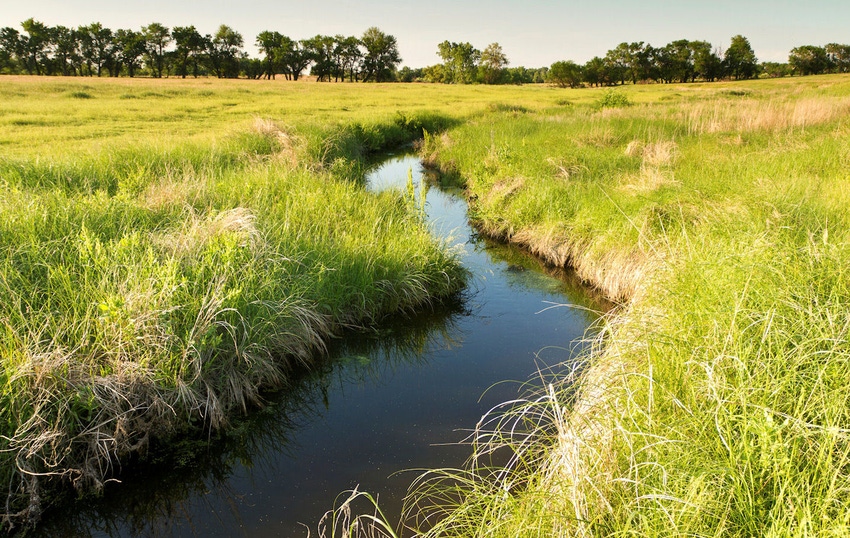Farmers get win in Des Moines Water Works case
Iowa Supreme Court rules Des Moines Water Works can’t receive damages in ongoing nitrate case.

The Iowa Supreme Court ruled Jan. 27 that Des Moines Water Works (DMWW) cannot seek monetary and injunctive relief from upstream drainage districts on claims arising from the cost to remove nitrates from drinking water.
In 2015, DMWW filed a federal complaint against the boards of supervisors of Sac County, Buena Vista County and Calhoun County, in their capacities as trustees of 10 drainage districts, for the discharge of nitrate pollutants into the Raccoon River.
The complaint seeks to declare the named drainage districts are “point sources,” not exempt from regulation, and are required to have a permit under federal and Iowa law. The latest ruling said that Iowa law recognizes that drainage districts are immune from injunctive relief claims, and has been for over a century.
DMWW provides drinking water to an estimated half-million Iowans in the Des Moines area. DMWW obtains its water primarily from the Raccoon and Des Moines Rivers. The Raccoon River drains about 2.3 million acres from portions of 17 Iowa counties, including Buena Vista, Sac and Calhoun.
The Iowa Farm Bureau Federation (IFBF) hopes the federal district court will dismiss the remaining aspects of the case, and collaborative work to improve water quality and fund those continued efforts can be the unified focus of all Iowans, moving forward.
“The lawsuit has done nothing to improve water quality and has impeded that conservation progress. Iowa farmers are taking on the challenge of improving water quality, but the challenge is bigger than farmers. That’s why farmers partnered, prior to the lawsuit, in key areas of the state to improve water quality. That work will and must continue. The best solution moving forward is to embrace collaborative efforts and practices designed and measured by ISU researchers which will sustain the land and water for all Iowans," said IFBF president Craig Hill.
The ruling means northwest Iowa drainage districts, farmers and rural citizens will not be held liable for damages from rainfall and a number of other factors, which can impact their naturally fertile land. “With one in five jobs directly tied to agriculture, rural Iowa has much at stake with this lawsuit, which from the beginning, had the potential to impact not just every farmer in Iowa, but agriculture throughout the United States,” says Hill.
Iowa Secretary of Agriculture Bill Northey also welcomed the ruling. Northey has advocated for a more voluntary approach to addressing water quality issues in the state. He noted that last fall 1,800 Iowa farmers committed $3.8 million in cost share funds to install nutrient reduction practices and Iowa continues to see increases in the adoption of practices, such as cover crops and bioreactors.
“While Iowans have continued to take on the challenge of improving water quality and investing in additional conservation practices, the lawsuit has been a needless distraction from our collaborative, research-based approach that is working with Iowans in rural and urban areas across the state to improve water quality.”
Northey noted DMWW’s failed strategy sought to circumvent Iowa’s law with more than 100 years of precedent. “Unfortunately, it has already cost Des Moines Water Works ratepayers more than $1 million dollars on lawyer fees that could be better spent improving their infrastructure and serving their customers,” he added.
About the Author(s)
You May Also Like




